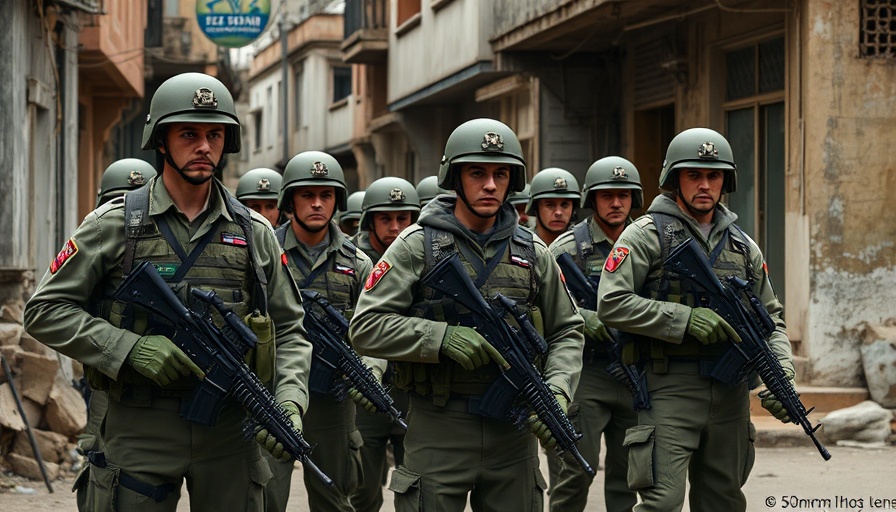
Rising Tensions in the DRC: A Call to Action
The Democratic Republic of Congo (DRC) has long been a focal point of unrest, with various factions vying for power, often leading to significant civilian suffering. Recently, President Cyril Ramaphosa emphasized the necessity for African leaders to pursue a "lasting peace" in the DRC during a Heads of State Summit in Tanzania. This call comes in light of a troubling security landscape, particularly in the eastern regions of the DRC, where violence has surged amid the presence of the M23 rebel group.
The Role of South African Troops
The stakes are particularly high following the tragic death of 14 South African National Defence Force (SANDF) soldiers engaged in peacekeeping operations in the Congolese town of Goma. The loss highlighted the real human cost associated with political instability in the region and underscored the urgent need for a coordinated regional response to restore order and provide humanitarian support.
A Diplomatic Approach to Peace
At the summit, the participating leaders reached a consensus to adopt an inclusive approach to negotiations, recognizing that sustainable peace cannot be achieved without the involvement of all stakeholders, including the M23, under the auspices of the ongoing Luanda and Nairobi processes. This inclusive strategy aims to encompass diverse voices in the negotiation process, which is fundamental for legitimacy and long-lasting resolutions.
Next Steps: Meeting of Defence Chiefs
In response to escalating tensions, the summit also directed regional Chiefs of Defence Forces to convene within five days. They are tasked with developing a comprehensive securitization plan for the M23-controlled areas, particularly Goma, emphasizing measures such as reopening the airport, evacuating civilians, and facilitating the repatriation of deceased soldiers.
Building Confidence for Withdrawal
Ramaphosa stated that these initiatives serve as confidence-building measures that could eventually lead to the withdrawal of Southern African Development Community (SADC) troops from the DRC. The overarching objective remains to ensure a stable political environment that prioritizes peace and well-being for the Congolese people while fostering regional stability.
Historical Context: The DRC's Long Struggle
Understanding the current situation in the DRC requires historical context. The country has experienced decades of conflict, often fueled by both ethnic tensions and the struggle for control over its rich natural resources. Past agreements have frequently fallen short, highlighting the need for a renewed commitment to addressing root causes of violence rather than merely tackling its symptoms.
The Complexity of Peace in the DRC
While the call for dialogue and negotiations is essential, the complexity of the DRC's conflicts cannot be overstated. Many stakeholders possess conflicting interests, and the involvement of external forces complicates the prospect for peace. Thus, fostering genuine dialogue among disparate groups—with varying motives—is crucial for any sustainable solution.
The Role of African Unity
Ramaphosa's appeal to collective African action is a vital reminder of the significant yet often underappreciated potential of regional cooperation. By pooling resources and intelligence, African nations can more effectively address the DRC's challenges. This underlines the need for a united vision—one that transcends national borders to achieve common objectives for peace and stability.
Future Implications: A Crossroads for Africa
The outcomes of these diplomatic efforts will not only influence the immediate situation in the DRC but may also set a precedent for how African nations collectively approach conflict resolution in the future. As the continent faces rising tensions in multiple regions, the unity displayed in the DRC's dealings could become a model for other conflict-affected zones.
In conclusion, navigating the myriad challenges in the DRC requires a thoughtful, engaged, and collaborative approach. The lives of countless individuals depend on the actions taken by leaders today. By fostering genuine dialogue and a commitment to peaceful resolution, African leaders can pave the way for a more stable future for the DRC and its neighbors. It is imperative that this directive translates into not just words, but decisive actions that prioritize the safety and dignity of all Congolese citizens.
 Add Row
Add Row  Add
Add 




Write A Comment